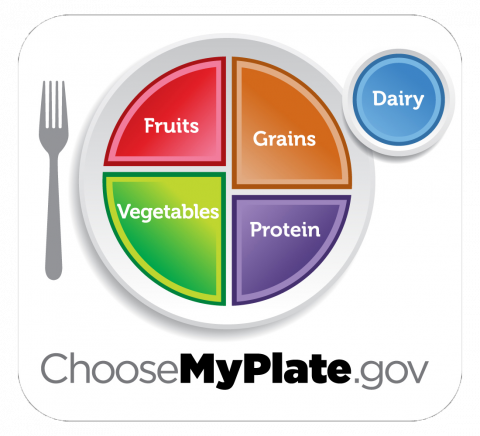
Have you heard others say, “I can’t eat that because it has carbs in it”? It is a common, yet untrue belief that carbohydrates are bad for us. Carbohydrates are an important part of a healthy diet!
Why do our bodies need carbohydrates?
Our body needs sugar for fuel. Carbohydrates are turned into sugar in our body. When we don’t eat enough sugar, our body can’t work at its best. We might get tired easily at work, and not have enough energy to be active or concentrate.
What are different types of carbohydrates?
Simple Sugars
Eating too many simple sugars is linked to weight gain, and increased risks for type 2 diabetes and heart disease. They are found in sugars and many processed foods. Most fruits also contain a type of simple sugar called fructose. However, fruits are an excellent source of many nutrients, minerals, and antioxidants. Therefore, fruit consumption is encouraged!
Eat Less:
- Cookies
- Candy
- Sweetened milk
- Soda/pop/soft drinks
- Sweet tea
- Pastries (pies, croissants, Danishes, cannoli, and tarts)
- White pasta or rice
Complex Carbohydrates
Starch and fiber are the two complex carbohydrates. Starch provides us a steady stream of energy. Fiber may reduces the risks of heart disease and diabetes. It also promotes healthy digestion by preventing constipation.
Eat More:
- Fruits and Vegetables
- Plain Milk without Added Sugars
- Whole-wheat Bread or Pasta
- Legumes (black beans, chickpeas, kidney beans, cannellini beans, etc.)
- Brown Rice
- Quinoa
Carbohydrates and MyPlate
MyPlate makes choosing healthy carbohydrates simple!
- Make half your plate fruits and vegetables
- Choose fresh, frozen, or canned fruits or vegetables
- Choose low-sodium canned vegetables or rinse the veggies before use
- Avoid canned fruits packed with heavy syrups - look for those in light syrup or canned in 100% juice
- Make half your grains whole grains
- Drink plain milk more often than flavored (chocolate, strawberry, etc.) milk

